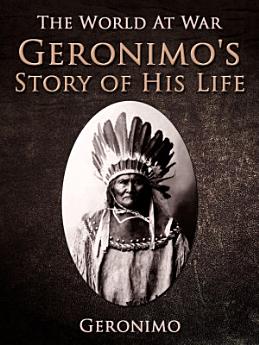Geronimo's Story of His Life
Sep 2016 · Otbebookpublishing
5.0star
1 reviewreport
Ebook
126
Pages
family_home
Eligible
info
reportRatings and reviews aren’t verified Learn More
About this ebook
Geronimo's Story of His Life is the oral life history of a legendary Apache warrior. Composed in 1905, while Geronimo was being held as a U.S. prisoner of war at Fort Sill, Oklahoma.
Ratings and reviews
5.0
1 review
About the author
Geronimo, born Goyahkla in 1829, was a prominent leader and medicine man of the Apache tribe, whose life and legacy have left an indelible mark on American history. Known for his fierce resistance against Mexican and U.S. military campaigns, Geronimo became a symbol of Native American resilience and defiance. His life was marked by a series of dramatic escapes, relentless guerrilla warfare, and eventual capture, which led to his imprisonment and later years as a prisoner of war.Geronimo's influence extended beyond his military prowess; he became an emblem of the broader struggles faced by Indigenous peoples during the westward expansion of the United States. His story is one of survival, adaptation, and resistance against overwhelming odds. Despite the controversies surrounding his tactics and the brutal conflicts in which he was involved, Geronimo's legacy is celebrated for his unwavering commitment to his people's autonomy and way of life.In his later years, Geronimo adapted to the changing world, participating in public events and even riding in Theodore Roosevelt's inaugural parade, which highlighted the complex relationship between Native Americans and the U.S. government. His life has inspired countless contemporary writers and artists, who view him as a powerful symbol of resistance and cultural endurance. Geronimo's revolutionary ideas about freedom and sovereignty continue to resonate, making him a compelling figure for modern readers interested in the intersections of history, culture, and identity.
Rate this ebook
Tell us what you think.
Reading information
Smartphones and tablets
Install the Google Play Books app for Android and iPad/iPhone. It syncs automatically with your account and allows you to read online or offline wherever you are.
Laptops and computers
You can listen to audiobooks purchased on Google Play using your computer's web browser.
eReaders and other devices
To read on e-ink devices like Kobo eReaders, you'll need to download a file and transfer it to your device. Follow the detailed Help Center instructions to transfer the files to supported eReaders.







